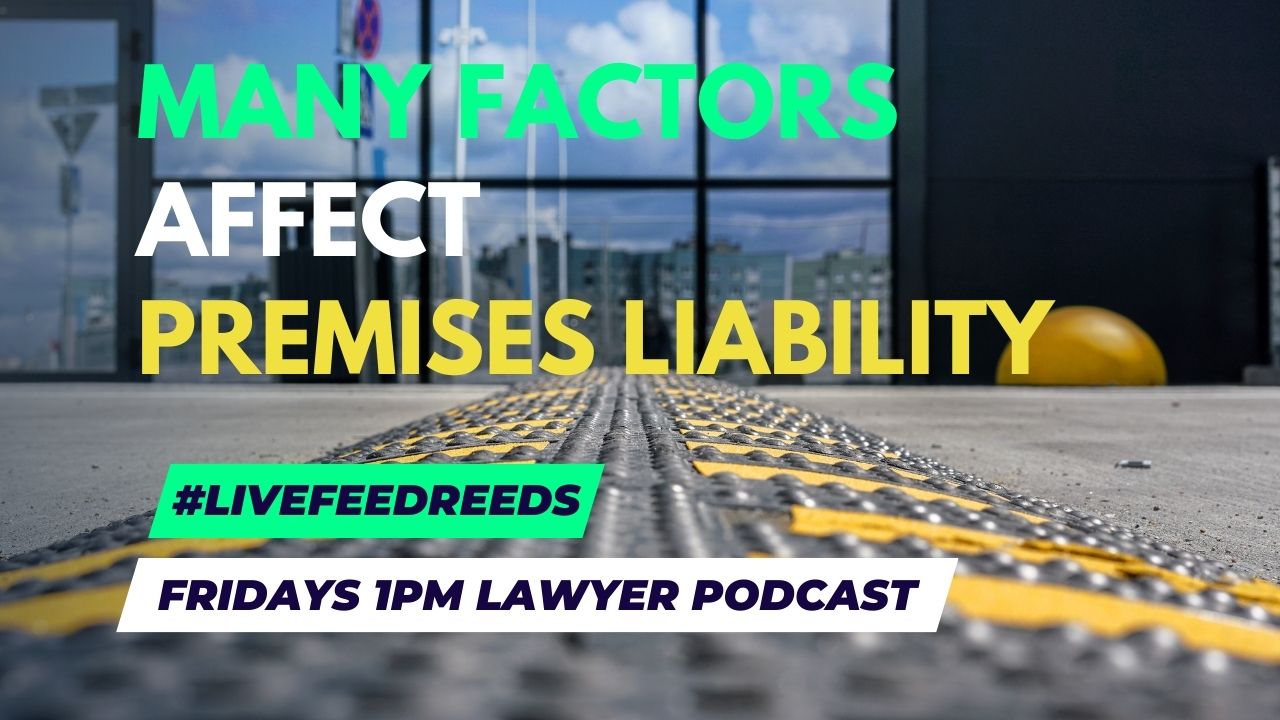Premises Liability Depends on the Facts of the Incident
Premises liability is the area of the law that allows you to pursue compensation if you suffer injuries while on someone else’s property. Because this can be a complicated and often misunderstood area of the law, attorney Paul Reed of Reed & Reed addresses some common misconceptions about premises liability personal injury claims.
What Is Premises Liability?
In general, premises liability is a type of tort that can impose legal liability on the owner or occupier of a property when someone is injured on the property. Contrary to popular belief, simply being injured on someone else’s property does not mean you have the basis for a successful premises liability lawsuit. The owner/occupier must have breached a legal duty of care owed to you that resulted in your injuries for you to be entitled to compensation. Typically, this means that you must prove negligence on the part of the owner or occupier of the property. Negligence, in turn, can be proven by showing that the defendant knew, or should have known, about a dangerous condition on the property and failed to fix the condition or to warn people about the condition.
Listen to Paul and Jason discuss this case on the LiveFeedReed podcast

Beware of “Open and Obvious” Conditions
A common defense argument in premises liability cases is that the “dangerous condition” was “open and obvious.” In layman terms, think of it as the “If you had been watching where you were going you would not have been injured” defense.
In the example attorney Reed used during a recent Lawyer Podcast segment, a woman was injured after tripping over a speed bump at an apartment complex. The inured victim argued that because the speed bump was not painted and was shaded by nearby foliage that she did not see the speed bump, causing her to trip over it. The trial court dismissed the lawsuit when the defendant filed a Motion for Summary Judgment. The Appellate Court affirmed the dismissal finding that because the victim had driven over the speed bump several times prior to the incident that the “dangerous condition” was open and obvious. As such, the defendant was not liable for her injuries.
By contrast, the owner of a property in Fish Hawk was found liable for injuries sustained by a child who ran into a barbed wire fence surrounding the defendant’s property while the child was playing kick the can on neighboring properties. Not only does that case highlight the intricate nature of premises liability cases, but it also brings up another misconception people frequently have about property rights. Just because it is your property does not mean you can do whatever you want on the property. If someone is injured on your property, you could be held liable for their injuries.
Facts and Circumstances Are Crucial in a Premises Liability Lawsuit
Whether or not a property owner or occupier is held legally liable for injured sustained on their property will always depend on the unique facts and circumstances involved. Numerous factors, including your reason for being on the property, will be considered when determining if the property owner/occupier was negligent. If you were injured while on someone else’s property, consulting with an experienced premises liability attorney is the best way to determine if you have an actionable premises liability lawsuit.
If you have additional questions or concerns about premises liability, contact the premises liability attorneys at Reed & Reed.
